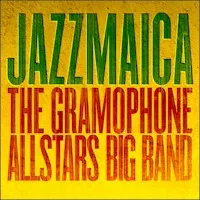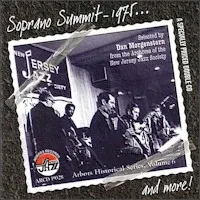Styles: Saxophone Jazz
Year: 1961
File: MP3@320K/s
Time: 37:45
Size: 87,2 MB
Art: Front
(3:08) 1. Three For The Festival
(4:21) 2. Moon Song
(4:37) 3. A Sack Full Of Soul
(3:37) 4. The Haunted Melody
(4:07) 5. Blues For Alice
(4:46) 6. We Free Kings
(2:28) 7. You Did It, You Did It
(6:08) 8. Some Kind Of Love
(4:30) 9. My Delight
We Free Kings
Year: 1961
File: MP3@320K/s
Time: 37:45
Size: 87,2 MB
Art: Front
(3:08) 1. Three For The Festival
(4:21) 2. Moon Song
(4:37) 3. A Sack Full Of Soul
(3:37) 4. The Haunted Melody
(4:07) 5. Blues For Alice
(4:46) 6. We Free Kings
(2:28) 7. You Did It, You Did It
(6:08) 8. Some Kind Of Love
(4:30) 9. My Delight
We Free Kings, Roland Kirk's third long-player, is among the most consistent of his early efforts. The assembled quartet provides an ample balance of bop and soul compliments to Kirk's decidedly individual polyphonic performance style. His inimitable writing and arranging techniques develop into some great originals, as well as personalize the chosen cover tunes. With a nod to the contemporary performance style of John Coltrane, as well as a measure of his influences most notably Clifford Brown and Sidney Bechet -- Kirk maneuvers into and out of some inspiring situations. His decidedly 'Trane-esque solos on "My Delight" are supported with a high degree of flexibility by one-time Charles Mingus' pianist Richard Wyands and Dizzy Gillespie percussionist Charlie Persip. The album's title track is a Kirk original, based on the melody of the Christmas hymn "We Three Kings." Incorporating recognizable melodies into Kirk's oft times unorthodox musical settings would prove to be a motif throughout his career. An example is the highly touted cover of Charlie Parker's "Blues for Alice." This is an ideal avenue for the quartet to explore one of Kirk's specialties the blues. The almost irreverent manner in which he fuses blues and soul music into the otherwise bop-driven arrangements is striking. "A Sack Full of Soul" is a funky number with a walking-blues backbeat that perfectly supports Kirk's swinging solos. The stop time syncopation is reminiscent of Ray Charles' "What'd I Say." The 1987 CD version also includes an alternate take of "Blues for Alice." One additional track a cover of the Frank Loesser standard "Spring Will Be a Little Late This Year" was also recorded at these sessions and remained unissued until its inclusion on the ten-disc Rahsaan: The Complete Mercury Recordings of Roland Kirk box set. ~ Lindsay Planer http://www.allmusic.com/album/we-free-kings-mw0000649599
Personnel: Roland Kirk: tenor saxophone, manzello, flute, stritch saxophone; Richard Wyands: piano (tracks 3-5 & 9); Art Davis: double bass (tracks 3-5 & 9); Charlie Persip: drums; Hank Jones: piano (tracks 1-2 & 6-8); Wendell Marshall: bass (tracks 1-2 & 6-8)
Personnel: Roland Kirk: tenor saxophone, manzello, flute, stritch saxophone; Richard Wyands: piano (tracks 3-5 & 9); Art Davis: double bass (tracks 3-5 & 9); Charlie Persip: drums; Hank Jones: piano (tracks 1-2 & 6-8); Wendell Marshall: bass (tracks 1-2 & 6-8)
We Free Kings




















